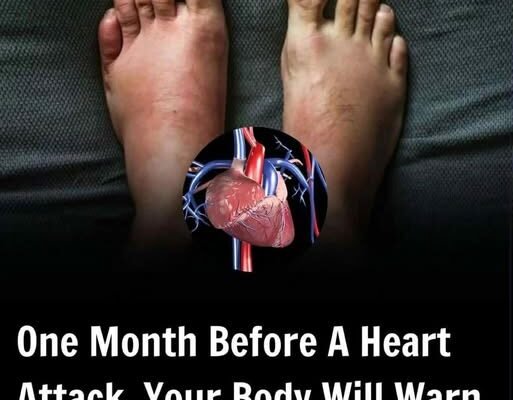Heart disease remains the leading cause of death across the world, and many people are unaware that the body often sends early warnings before a heart attack. According to the World Health Organization, ischemic heart disease alone caused 8.9 million deaths in 2019. Medical research shows that people can experience subtle or obvious prodromal symptoms—early warning signs—days, weeks, or even months before a major cardiac event. Unfortunately, these signals are often ignored, mistaken for minor health issues, or simply overlooked due to busy lifestyles.
One of the most common warning signs is fatigue. This isn’t the usual tiredness that comes after a long day, but an overwhelming sense of exhaustion that lingers even after rest. People describe it as being extremely drained, sleepy, or unable to carry out normal activities. This happens because narrowed arteries reduce the amount of blood—and therefore oxygen—that reaches the heart muscle, leaving the body struggling to function efficiently. Persistent fatigue should never be dismissed, especially if it is unusual or new.
Another major symptom is shortness of breath. This occurs when the heart and lungs fail to deliver enough oxygen to the body. Even simple activities like climbing stairs, walking a short distance, or lying down can cause difficulty breathing. Doctors warn that this is one of the most serious red flags, as shortness of breath often appears right before a heart attack. Anyone who notices sudden breathing difficulties should seek medical advice immediately, as it could be a sign of dangerously reduced circulation.
Other prodromal symptoms include chest pain, burning sensations, heaviness, dizziness, palpitations, anxiety, and even disturbances in sleep. Some people may feel sudden hot or cold sensations, unexplained nausea, or back pain. These signs can be inconsistent—sometimes appearing mild and then disappearing—which makes them easy to underestimate. However, they reflect strain on the heart and circulatory system, building up to a potential heart attack if left unchecked.
Finally, sudden weakness or poor circulation in the body can serve as a direct warning that the heart is under pressure. These sensations are often the body’s way of signaling that blood flow is restricted. If the pressure continues to increase without treatment, the result may be a full-blown heart attack. Recognizing and respecting these early signs could save countless lives. Experts strongly advise that if anyone experiences these symptoms—especially in combination—they should consult a doctor without delay. Prevention and early action are the keys to protecting heart health.



